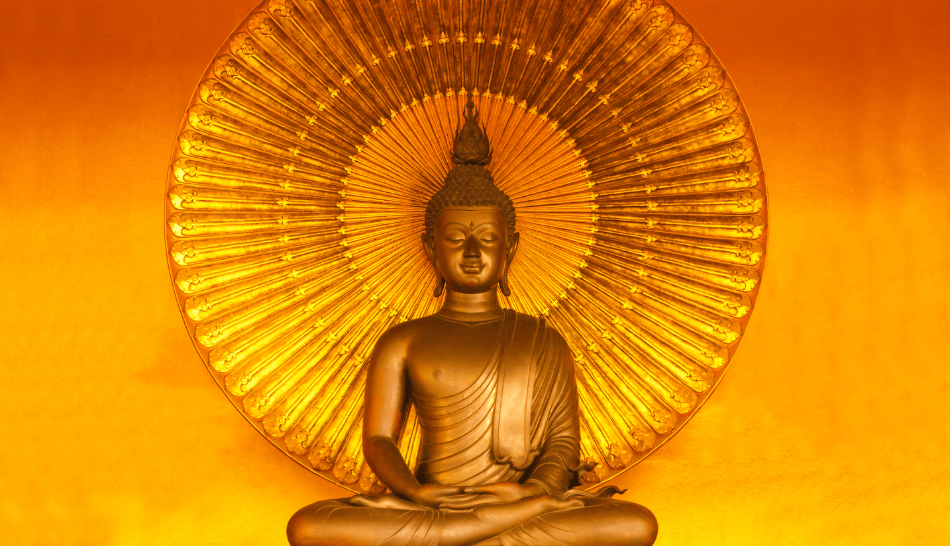When you hear the word “karma,” you might think of it as a simple cause-and-effect principle: do good, and good things will happen to you; do bad, and you’ll face consequences. However, in Buddhism, karma is a profound and intricate concept that shapes your entire existence. Understanding karma isn’t just about avoiding negative actions; it’s about cultivating a life of mindfulness and ethical behaviour that can transform your spiritual journey.
In Buddhism, karma goes beyond mere retribution or reward. It’s a guiding principle that influences your thoughts, actions, and future experiences. By understanding karma deeply, you gain insight into how your actions impact not only your current life but also your future lives. This knowledge empowers you to make conscious choices that lead to inner peace and spiritual growth.
Let’s delve into the essence of karma in Buddhism, exploring its nuances and how you can apply its teachings to lead a more mindful and purposeful life.
What is karma in Buddhism?
Karma in Buddhism is the fundamental principle of cause and effect. Every action you take, every word you speak, and every thought you have creates a ripple effect, influencing not only your present life but also your future experiences. It’s not just about what you do; it’s the intention behind your actions that shapes the consequences.
In Buddhist teachings, karma is seen as a natural law, similar to gravity. Just as gravity affects everyone regardless of belief, karma influences your life, whether you are aware of it or not. The actions you perform today set the stage for what you will encounter tomorrow. Positive actions lead to positive outcomes, while negative actions result in suffering.
Understanding karma in this light helps you realise that you are the architect of your destiny. By aligning your actions with positive intentions, you can create a future filled with peace, happiness, and spiritual growth. This awareness encourages you to live more mindfully, considering the impact of your actions on yourself and others.
Three Types of Karma in Buddhism
Understanding the different types of karma helps you see how your past, present, and future are interconnected. In Buddhism, karma is categorised into three types: past karma (Sanchita Karma), present karma (Prarabdha Karma), and future karma (Agami Karma).
1. Past Karma (Sanchita Karma)
Your accumulated actions from previous lives form your past karma. These actions have already been performed and stored, influencing your current life circumstances. Think of it as a vast reservoir of deeds, both good and bad, waiting to manifest. While you can’t change these past actions, understanding their impact helps you navigate your present life more consciously.
2. Present Karma (Prarabdha Karma)
Present karma refers to the portion of past karma that is currently affecting you. It’s like a slice of the stored karma that ripens and determines your current life situation. This is why you might experience certain challenges or blessings seemingly out of nowhere. Recognising this helps you accept your present conditions with equanimity and work towards creating better future karma.
3. Future Karma (Agami Karma)
The actions you perform now create your future karma. This is where you have the most control and opportunity to influence your destiny. Every thought, word, and deed you engage in today plants seeds for what you will experience in the future. By focusing on positive actions and intentions, you can shape a future filled with positive experiences and spiritual growth.
Understanding these three types of karma provides a comprehensive view of how your actions from past lives, your current actions, and your future intentions are all intricately linked. This awareness empowers you to live more mindfully, knowing that every moment is an opportunity to create positive karma.
Karma and Intention
In Buddhism, intention (cetana) plays a crucial role in shaping karma. It’s not just the action itself that matters, but the motivation behind it. Your intentions determine the moral quality of your actions and, consequently, the type of karma you generate.
When you perform an action with a positive intention, such as kindness, compassion, or generosity, you create positive karma. This is because your actions are rooted in good will and benefit both yourself and others. Conversely, actions driven by negative intentions, such as anger, greed, or hatred, result in negative karma, leading to suffering and unfavourable outcomes.
For example, giving to charity with the genuine intention of helping others creates positive karma. However, if you give to charity solely for recognition or self-gain, the karmic result is less favourable. This distinction highlights the importance of cultivating pure and selfless intentions in your daily life.
By focusing on your intentions, you can transform even ordinary actions into opportunities for spiritual growth. Mindfulness practices, such as meditation, help you become more aware of your intentions and guide you towards actions that generate positive karma. This conscious approach to living ensures that your actions align with your highest values, promoting a cycle of positive karma and spiritual well-being.
Understanding the role of intention in karma encourages you to act with mindfulness and compassion, knowing that your motives significantly influence the karmic outcome of your actions. This awareness leads to a more deliberate and meaningful life, where each action contributes to your spiritual journey.
Karma in Buddhism : The Cycle of Samsara

Karma is intricately connected to the cycle of samsara, the continuous cycle of birth, death, and rebirth that all beings undergo. Understanding this cycle is essential to grasping how karma influences your existence and spiritual journey.
In Buddhism, samsara represents the endless wheel of life, driven by ignorance, desire, and attachment. Your actions, fueled by these forces, create karma that binds you to this cycle. Each life you live is shaped by the karma accumulated in previous lives, and your current actions will determine your future rebirths.
The ultimate goal in Buddhism is to break free from samsara and achieve Nirvana, a state of liberation and enlightenment. To do this, you must understand how karma operates within the cycle of samsara.
1. Ignorance (Avidya)
Ignorance is the root cause of samsara. It is a fundamental misunderstanding of the nature of reality and the self. This ignorance leads to the creation of karma, as you act based on false perceptions and desires.
2. Desire and Attachment (Tanha)
Desire and attachment perpetuate the cycle of samsara. When you crave and cling to experiences, possessions, or identities, you generate karma that keeps you bound to the cycle of rebirth.
3. Action and Rebirth
Your actions, driven by ignorance and desire, create karma that determines the conditions of your future rebirths. Positive actions lead to more favourable rebirths, while negative actions result in less desirable ones. However, even favourable rebirths keep you within Samsara.
4. Breaking the Cycle
To break free from samsara, you must cultivate wisdom (prajna) and ethical conduct (sila). By understanding the true nature of reality and letting go of desires and attachments, you purify your karma and move towards liberation.
Recognising how karma fuels the cycle of samsara empowers you to take control of your spiritual journey. By living mindfully and ethically, you can reduce the creation of negative karma and work towards breaking free from the endless cycle of rebirth. This understanding encourages you to seek enlightenment, where you transcend karma and samsara altogether.
You might also be interested in:
- Unveiling the Essence of Buddhism Symbol – Dharma Wheel and Beyond in Modern World
- 8 Clear Signs That Tell Your Reincarnation Cycle On Earth Is Coming To An END!
- The Karmic Journey : 8 Reasons Why Old Souls Come Back to Earth?
Karma in Buddhism : Wholesome and Unwholesome Actions
In Buddhism, actions are categorised as wholesome (kusala) or unwholesome (akusala) based on their moral quality and the intentions behind them. Understanding these categories helps you navigate your actions and their karmic consequences more mindfully.
1. Wholesome Actions (Kusala)
Wholesome actions are those that are morally positive and lead to beneficial outcomes. They are rooted in intentions such as kindness, compassion, and wisdom. These actions generate positive karma, contributing to your spiritual growth and well-being. Examples include:
- Generosity (Dana): Acts of giving and sharing without expecting anything in return.
- Ethical Conduct (Sila): Adhering to moral principles, such as refraining from harming others and practicing honesty.
- Mental Development (Bhavana): Cultivating mindfulness and meditation to develop a calm and focused mind.
2. Unwholesome Actions (Akusala)
Unwholesome actions are those that are morally negative and lead to harmful outcomes. They arise from intentions like greed, hatred, and delusion. These actions create negative karma, resulting in suffering and obstacles on your spiritual path. Examples include:
- Harming Others (Himsa): Actions that cause physical or emotional harm to others, driven by anger or malice.
- Dishonesty (Musavada): Engaging in deceitful behaviour, whether through lying, cheating, or manipulating.
- Ignorance (Avijja): Acting out of delusion or misunderstanding, leading to decisions that perpetuate suffering.
Understanding the difference between wholesome and unwholesome actions allows you to make conscious choices that align with positive karmic outcomes. By focusing on wholesome actions, you can purify your mind and create a foundation for spiritual progress. This practice not only benefits you but also positively impacts those around you, creating a ripple effect of positive karma.
Incorporating wholesome actions into your daily life encourages you to live with greater mindfulness and ethical awareness. By doing so, you transform your intentions and actions, leading to a more harmonious and spiritually fulfilling existence.
The Role of Mindfulness and Ethical Conduct

Mindfulness (sati) and ethical conduct (sila) are essential practices in Buddhism for purifying karma and fostering spiritual growth. By cultivating these practices, you can align your actions with positive intentions and generate wholesome karma.
1. Mindfulness (Sati)
Mindfulness is the practice of being fully present and aware of your thoughts, emotions, and actions in the present moment. It involves observing your inner and outer experiences without judgement. Here’s how mindfulness plays a role in shaping your karma:
- Awareness of Intentions: Mindfulness helps you recognise your intentions before you act. This awareness allows you to choose actions that generate positive karma.
- Breaking Negative Patterns: By being mindful, you can identify and interrupt harmful habitual behaviours, reducing the creation of negative karma.
- Enhancing Positive Actions: Practicing mindfulness encourages you to perform actions with greater compassion and kindness, increasing the accumulation of positive karma.
2. Ethical Conduct (Sila)
Ethical conduct refers to adhering to moral principles that promote harmony and reduce suffering. In Buddhism, ethical conduct is guided by the Five Precepts, which are fundamental ethical guidelines:
- Abstaining from Killing (Panatipata Veramani): Refrain from harming or taking the life of any living being.
- Abstaining from Stealing (Adinnadana Veramani): Avoid taking what is not given to you.
- Abstaining from Sexual Misconduct (Kamesu Micchacara Veramani): Engage in respectful and consensual relationships.
- Abstaining from False Speech (Musavada Veramani): Speak truthfully and avoid deceit, slander, and harsh words.
- Abstaining from Intoxicants (Surameraya Majjapamadatthana Veramani): Avoid substances that cloud your mind and lead to irresponsible behaviour.
By following these precepts, you cultivate a life of integrity and responsibility. Ethical conduct not only purifies your karma but also creates a supportive environment for your spiritual practice. It strengthens your ability to act with wisdom and compassion, enhancing the quality of your karma.
Incorporating mindfulness and ethical conduct into your daily life helps you live with greater awareness and intention. These practices enable you to make choices that generate positive karma and contribute to your spiritual liberation. By being mindful and ethical, you create a foundation for lasting peace and happiness, both for yourself and those around you.
Misconceptions About Karma
There are several common misconceptions about karma in Buddhism that can lead to misunderstandings of its true nature and functioning in Buddhism. Clarifying these misconceptions helps you gain a more accurate and practical understanding of karma.
1. Karma as immediate retribution
Many people believe that karma works instantaneously, like a cosmic vending machine where good deeds immediately bring rewards and bad deeds bring punishment. In reality, karma operates over long periods of time and multiple lifetimes. The effects of your actions may not manifest immediately, but they will influence your future experiences in ways that are often subtle and complex.
2. Karma as fate or predestination
Another misconception is that karma dictates a fixed destiny, leaving you powerless to change your life. However, karma is not about predestination. It’s about cause and effect. While your past actions influence your present circumstances, you always have the power to create new karma through your current actions. You are not bound by fate; you are an active participant in shaping your future.
3. Karma as punishment
Some view karma as a system of punishment for wrong doings. This perspective misses the essence of karma in Buddhism. Karma is not about retribution; it’s about learning and growth. Negative experiences resulting from bad karma are opportunities for learning and transformation, encouraging you to develop wisdom and compassion.
4. Only actions count, Not intentions
It’s a common misconception that only physical actions create karma, while intentions and thoughts are irrelevant. In Buddhism, intentions are crucial in determining the karmic impact of your actions. An action driven by good intentions generates positive karma, while the same action driven by selfish motives might not.
5. Karma is solely individual
While individual karma is significant, Buddhism also acknowledges the concept of collective karma. The actions of groups, communities, and even nations create collective karma that influences the shared experiences of those involved. Understanding collective karma helps you see the interconnectedness of all beings and the impact of collective actions.
Addressing these misconceptions allows you to approach karma with a more nuanced and accurate understanding. Recognising that karma is not immediate, predestined, or punitive helps you see it as a compassionate and educational process. This perspective encourages you to take responsibility for your actions and their consequences, fostering a mindful and ethical approach to life.
By dispelling these myths, you can embrace the true essence of karma in Buddhism, using it as a tool for personal growth and spiritual development. This deeper understanding empowers you to live more consciously, creating a positive ripple effect in your life and the lives of others.
Practical Application of Karma

Incorporating the principles of karma in Buddhism into your daily life can profoundly impact your spiritual journey. Here are practical tips to help you create positive karma:
- Practice compassion: Cultivate empathy and kindness towards all beings. Treat others with respect and understanding, recognising their inherent worth and interconnectedness with you.
- Embrace Generosity: Share your time, resources, and skills with others selflessly. Generosity fosters a sense of abundance and promotes positive energy exchange in the universe.
- Cultivate Wisdom: Continuously seek knowledge and insight. Apply wisdom in decision-making, considering the long-term consequences of your actions on yourself and others.
- Live Mindfully: Be present in each moment, aware of your thoughts, words, and actions. Mindfulness helps you make conscious choices aligned with positive intentions.
- Practice nonviolence: Avoid causing harm to any living being, including through thoughts, speech, and actions. Nonviolence promotes harmony and reduces negative karmic effects.
- Forgive and Let Go: Release grudges and resentments, understanding that holding onto negativity hinders spiritual growth. Forgiveness frees you from past burdens and promotes inner peace.
- Seek Balance: Strive for a balanced life that prioritises spiritual growth, ethical conduct, and harmonious relationships. Balance fosters overall well-being and supports positive karmic outcomes.
In conclusion, karma in Buddhism is not just a simplistic law of cause and effect; it’s a profound and intricate principle that shapes your entire existence. Understanding karma goes beyond avoiding negative actions; it’s about cultivating mindfulness, ethical behaviour, and positive intentions that can transform your spiritual journey. By delving into the essence of karma, you gain insight into how your actions impact your present and future experiences, empowering you to make conscious choices that lead to inner peace and spiritual growth.
Further, consider exploring reading on related topics such as mindfulness, ethical conduct, and the cycle of samsara to deepen your understanding and practice of karma in Buddhism.
As we draw near the end of this blog, if you are looking for some artistic inspiration, do explore my spiritual art expressions here and shop here for prints that inspire and uplift! 🌈 ✨
Until next time,
Love, light, and endless inspiration to all.
Neethu.




